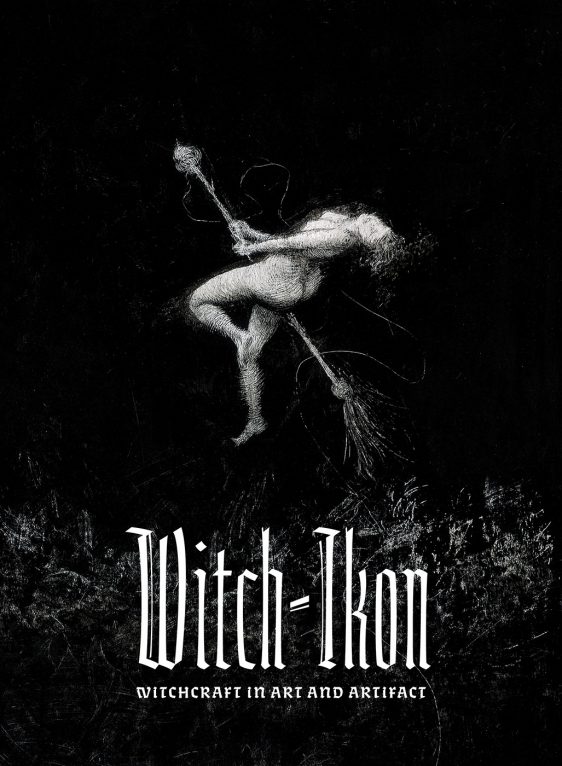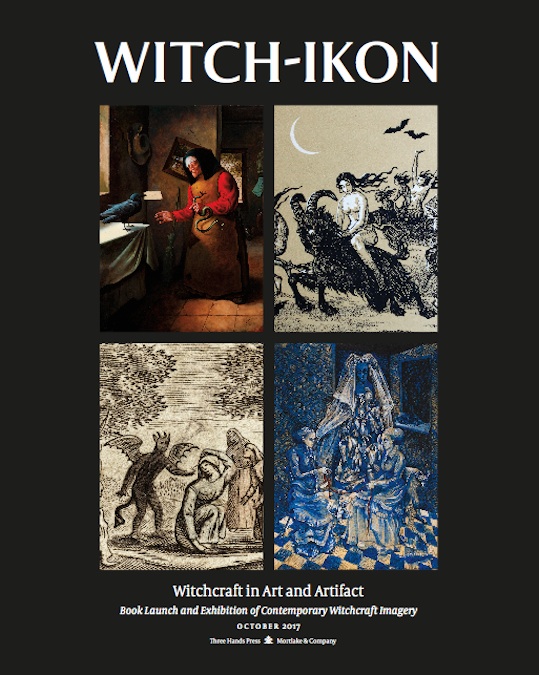b
Witch-Ikon Book Launch and Art Exhibition
Witch-Ikon: Witchcraft in Art and Artifact is an upcoming publication from Three Hands Press, examining the iconography of witches and their magic through the centuries, to be released on October 28. There will also be an exhibition of contemporary artwork which is featured in the book, running from October 5 to 31 at Mortlake & Company in Seattle. I have long been fascinated by the witch as a powerful image and symbol, and by the history and aesthetics of witchcraft and diabolism, so this promises to be delightfully edifying to me.
“The figure of the Witch has haunted the margins of religion and spirituality for thousands of years, as a figure of transgressive spiritual power, outlaw magic, and alluring sexuality. Equally pervasive is her presence in art, from ancient depictions in the Near East, through the European Middle Ages, down to her present representations in occult subculture….Equal in potency to the figure of legend and romance are the magical artifacts which emerged from the varied traditions of malefic magic… The mask, the idol, the knife, the cauldron, the spirit-bottle, and a thousand other magical objects also serve, like the image of the witch herself, to embody a transgressive and beguiling aesthetic.
The exhibition WITCH-IKON brings together an international consortium of artists with varied esoteric and artistic backgrounds, infusing the witch-mythos with new imaginal vitality.”

